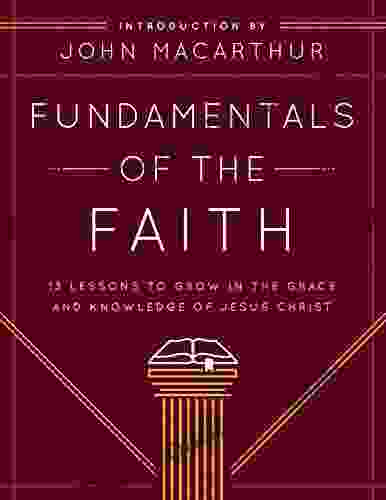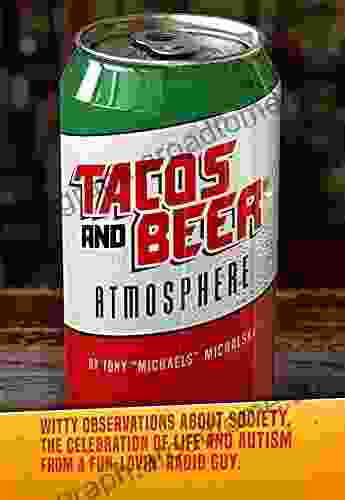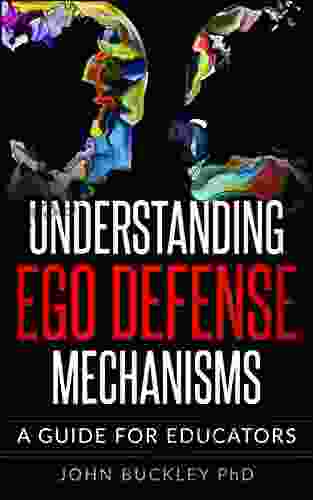Understanding Ego Defense Mechanisms: A Guide for Educators

Ego defense mechanisms are unconscious mental processes that protect individuals from anxiety and maintain a sense of self-esteem. These mechanisms are an essential part of child development; however, when used excessively or inappropriately, they can hinder emotional growth and healthy functioning. Educators play a critical role in fostering healthy emotional development and understanding how ego defense mechanisms manifest in children can assist them in creating a supportive and nurturing learning environment.
Sigmund Freud, the father of psychoanalysis, first proposed the concept of ego defense mechanisms in his seminal work, "The Defense Mechanisms." Freud believed that defense mechanisms serve as unconscious safeguards against anxiety, threat, and psychic conflict. They operate automatically and often outside of conscious awareness, helping individuals maintain a sense of psychological equilibrium.
Defense mechanisms can be categorized into three primary groups:
4 out of 5
| Language | : | English |
| File size | : | 986 KB |
| Text-to-Speech | : | Enabled |
| Enhanced typesetting | : | Enabled |
| Word Wise | : | Enabled |
| Print length | : | 180 pages |
| Lending | : | Enabled |
| Screen Reader | : | Supported |
- Immature Defense Mechanisms: These defense mechanisms emerge early in childhood and are often considered primitive. They include denial, projection, and splitting.
- Intermediate Defense Mechanisms: These defense mechanisms develop later in childhood and adolescence and are characterized by more complex mental operations. They include intellectualization, rationalization, and repression.
- Mature Defense Mechanisms: These defense mechanisms emerge in adulthood and promote healthy emotional development. They include sublimation, humor, and altruism.
Ego defense mechanisms play a significant role in child development. They help children cope with the challenges of growing up, such as separation anxiety, peer pressure, and academic demands. However, excessive or inappropriate use of defense mechanisms can hinder emotional growth and lead to psychological difficulties.
Common ego defense mechanisms observed in children include:
- Denial: Refusing to acknowledge reality or difficult emotions.
- Projection: Attributing one's own thoughts or feelings to another person.
- Regression: Returning to earlier stages of development to seek comfort.
- Displacement: Redirecting thoughts or feelings from one target to another.
Educators can play a vital role in identifying and responding to ego defense mechanisms in children. By recognizing the signs and symptoms of defense mechanisms, educators can create a safe and supportive learning environment where children feel comfortable expressing their emotions and developing healthy coping mechanisms.
Strategies for responding to ego defense mechanisms include:
- Validating the Child's Feelings: Acknowledge and accept the child's emotions, even if you don't understand or agree with them.
- Providing a Safe Space for Expression: Create opportunities for children to talk about their feelings openly and honestly.
- Encouraging Healthy Coping Mechanisms: Help children develop alternative ways to cope with anxiety and stress, such as relaxation techniques or talking to a trusted adult.
- Setting Boundaries: Establish clear limits and expectations for behavior while maintaining a supportive and encouraging environment.
In addition to addressing ego defense mechanisms, educators can promote healthy emotional development in children by:
- Creating a Warm and Nurturing Environment: Provide a classroom atmosphere where children feel safe, valued, and respected.
- Encouraging Open Communication: Foster an environment where children feel comfortable sharing their thoughts and feelings.
- Promoting Self-Awareness and Reflection: Help children understand their emotions and behaviors and encourage them to reflect on their actions.
- Supporting Positive Relationships: Encourage peer support and foster positive relationships among students.
- Collaborating with Parents and Caregivers: Work together with parents and caregivers to provide a consistent and supportive environment for the child's emotional development.
Understanding ego defense mechanisms is crucial for educators because it allows them to:
- Identify and respond effectively to challenges in children's emotional development.
- Create a supportive learning environment that fosters healthy emotional growth.
- Promote positive mental health and well-being among students.
- Collaborate effectively with parents and caregivers.
- Enhance their own emotional understanding and self-awareness.
Understanding ego defense mechanisms is an essential aspect of educating children. By recognizing the different types of defense mechanisms, how they manifest in children, and effective strategies for responding to them, educators can support children's emotional development and create a classroom environment that fosters healthy emotional growth. This comprehensive guide provides educators with the knowledge and tools they need to create a supportive and nurturing learning environment where children can thrive emotionally and academically.
Free Download Your Copy Today!
4 out of 5
| Language | : | English |
| File size | : | 986 KB |
| Text-to-Speech | : | Enabled |
| Enhanced typesetting | : | Enabled |
| Word Wise | : | Enabled |
| Print length | : | 180 pages |
| Lending | : | Enabled |
| Screen Reader | : | Supported |
Do you want to contribute by writing guest posts on this blog?
Please contact us and send us a resume of previous articles that you have written.
 Book
Book Novel
Novel Page
Page Chapter
Chapter Text
Text Story
Story Genre
Genre Reader
Reader Library
Library Paperback
Paperback E-book
E-book Magazine
Magazine Newspaper
Newspaper Paragraph
Paragraph Sentence
Sentence Bookmark
Bookmark Shelf
Shelf Glossary
Glossary Bibliography
Bibliography Foreword
Foreword Preface
Preface Synopsis
Synopsis Annotation
Annotation Footnote
Footnote Manuscript
Manuscript Scroll
Scroll Codex
Codex Tome
Tome Bestseller
Bestseller Classics
Classics Library card
Library card Narrative
Narrative Biography
Biography Autobiography
Autobiography Memoir
Memoir Reference
Reference Encyclopedia
Encyclopedia John A Beck
John A Beck Jeremy Scott
Jeremy Scott Jodi Helmer
Jodi Helmer John Mcarthur
John Mcarthur Shelby Stoddard
Shelby Stoddard Jessie Thomas
Jessie Thomas Jessie Close
Jessie Close Jorge Ancheyta
Jorge Ancheyta Shawn Coyne
Shawn Coyne Joan Liebmann Smith
Joan Liebmann Smith M Sweeney
M Sweeney Steve Johnson
Steve Johnson Nancy Silverman
Nancy Silverman Minke De Vos
Minke De Vos Jim Davies
Jim Davies Joan A Friedman
Joan A Friedman John Barron
John Barron Prasenjit Sarkar
Prasenjit Sarkar Jeremy Arnold
Jeremy Arnold Tianna Galgano
Tianna Galgano
Light bulbAdvertise smarter! Our strategic ad space ensures maximum exposure. Reserve your spot today!

 Herb Simmons13 Lessons To Grow In The Grace And Knowledge Of Jesus Christ: A Spiritual...
Herb Simmons13 Lessons To Grow In The Grace And Knowledge Of Jesus Christ: A Spiritual... W.B. YeatsFollow ·17.3k
W.B. YeatsFollow ·17.3k Thomas MannFollow ·17.3k
Thomas MannFollow ·17.3k Robin PowellFollow ·4.7k
Robin PowellFollow ·4.7k Alex FosterFollow ·7.8k
Alex FosterFollow ·7.8k Keith CoxFollow ·5.2k
Keith CoxFollow ·5.2k Jason HayesFollow ·15.6k
Jason HayesFollow ·15.6k Quentin PowellFollow ·7.4k
Quentin PowellFollow ·7.4k Hugh ReedFollow ·14.5k
Hugh ReedFollow ·14.5k

 Julio Cortázar
Julio CortázarAn Illustrated Encyclopedia Of Live Concerts And...
Immerse yourself in the...

 Edgar Cox
Edgar CoxNon Physically Assaultive Attachment Based Chronic Covert...
What is Covert...

 Robert Reed
Robert ReedThe Baseball of Why: Unraveling the Intricacies of...
Step up to the plate and...

 Aldous Huxley
Aldous HuxleyTacos and Beer: An Atmosphere of Flavorful Delights
In the realm of culinary adventures,...

 Stan Ward
Stan WardUnlock the Secrets of the Aramaic Jesus: Revelations of a...
Journey Back to the Roots of...

 Vincent Mitchell
Vincent MitchellMillionaire Success Strategies: Your Blueprint for...
Unlock the...
4 out of 5
| Language | : | English |
| File size | : | 986 KB |
| Text-to-Speech | : | Enabled |
| Enhanced typesetting | : | Enabled |
| Word Wise | : | Enabled |
| Print length | : | 180 pages |
| Lending | : | Enabled |
| Screen Reader | : | Supported |










